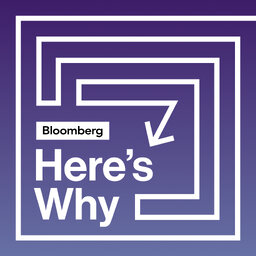Oil Peak? Consumer pique?
A bold call from David Fickling on oil this week... see if you agree. We also examine data showing the beginnings of a shift in US consumer behavior with Jonathan Levin. And John Authers discusses why we haven't yet seen capitulation in equity markets.
In 1 playlist(s)
Bloomberg Opinion
Deeper conversations on the week's most significant developments. Tune in and join in!Social links
Follow podcast
Recent clips

Introducing 'Here's Why' - Complex News Stories Explained
00:30

Airline Mergers and Restaurant Loyalty
35:20

Fossil Fuel Use and Drug Development
35:28
 Bloomberg Opinion
Bloomberg Opinion